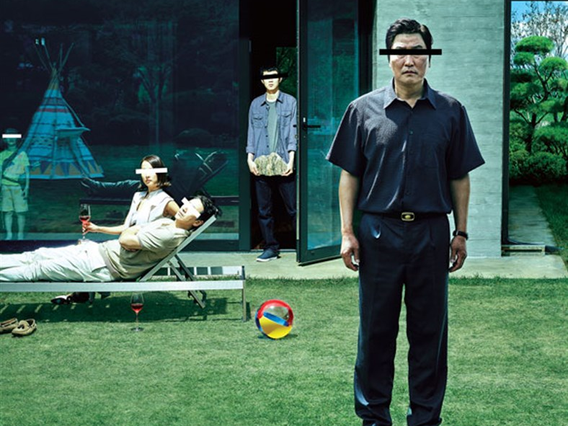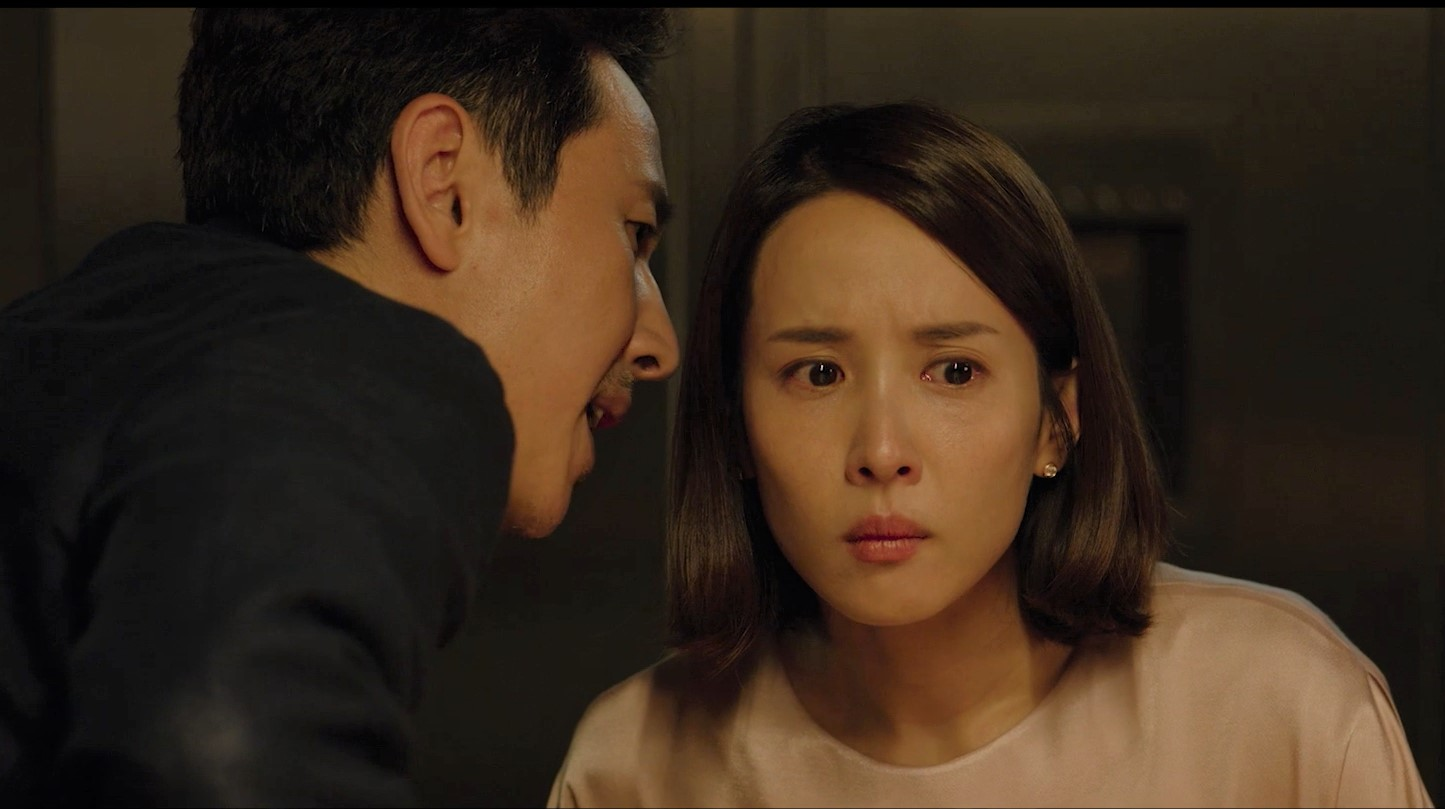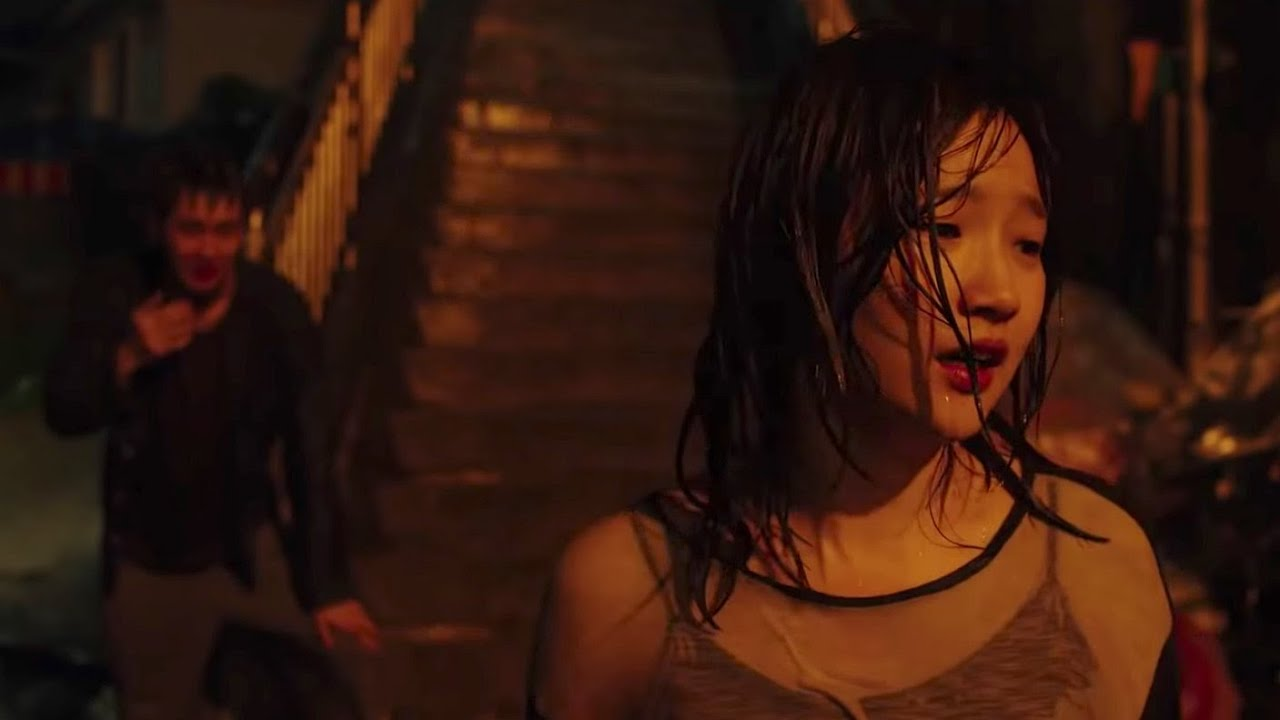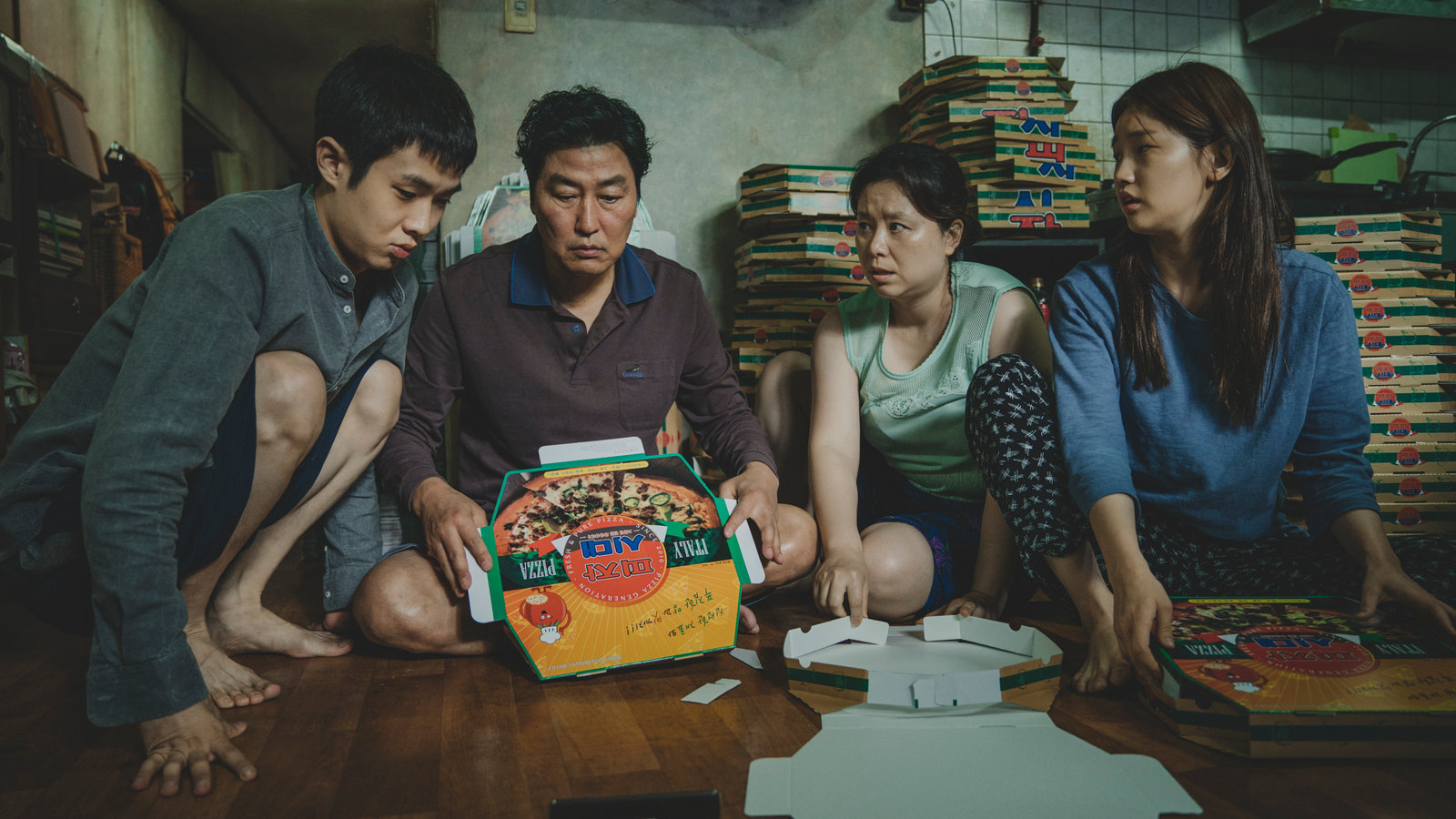Parasite (2019)—The Film Nobody Saw Coming

In 2019, director Bong Joon-ho came out with a black comedy that also served as social commentary on the political environment of South Korea: Parasite! While the film didn’t get too much traction upon initial release, word of mouth caught wind like wildfire and soon, everyone was wondering what the big fuss was about Parasite.
The Kim family (Ki-taek, Chung-sook, Ki-jung, and Ki-woo) is a poor working class family who barely makes ends meet by folding pizza boxes for a living. One day, Ki-Woo’s friend gives him a job as a tutor for the daughter of the wealthy Park family. Ki-woo cons his way into the Park’s lives and soon recruits the rest of his family to take up different jobs for the Park family. However, one night when the Parks are out, the Kim family stays over at the Parks’ mansion, they are greeted by the former house maid who reveals a dark secret that changes everything.

This was the second Bong Joon-ho film I saw, the first being 2013’s Snowpiercer. While both films have very similar themes, Parasite to me is the shining example that really calls out the economic system in South Korea. The Park and Kim families come from vastly different backgrounds, the Park family being quite wealthy while the Kim family sits on the edge of poverty. The two families are not only from different social classes, but have very different outlooks on the world. A very telling example of this comes in the form of the ram-don dish. Chapaguri— or ram-don as translated by the movie’s English subtitles— is a Korean noodle dish made from two different packages of instant noodles, Chapagetti and Neoguri. It is a cheap meal that could be compared to Kraft Mac and Cheese or Hamburger Helper in terms of its low cost and comforting nature. However, when Mrs. Park directs Chung-sook to prepare the dish for her son, she insists that Chung-sook include sirloin steak, specifically hanu. Hanu steak comes from Hanwoo cattle, and it’s one of the most expensive types of steak in the world, even more expensive than some kinds of Japanese wagyu pound-for-pound. Mrs. Park only will let her son eat this dish whose ingredients can be bought for next-to-nothing if it’s topped with $100 steak. In the end, the kid doesn’t even end up eating it.

However, the scene which perhaps most demonstrates class disparity is the storm that occurs about halfway through the movie. The Kim family arrive at their semi-basement apartment only to find it flooded with sewer water. Their belongings are destroyed and their home is rendered unlivable, forcing them to take shelter in a gymnasium for the night along with hundreds of others displaced by flooding. Meanwhile, the Park family, comfortable in their mansion uphill, watch the storm and comment on how beautiful it is. Altitude and height plays a major role in Parasite in terms of illustrating class disparity. The poorer characters in the film live below ground either partially or fully while the wealthy live atop their hills and look out over everything. As climate change progresses, low-lying coastal areas around the world will become inhabitable due to storms and oceanic flooding. And while the wealthy can afford to abandon the area and start over, the poor don’t have that luxury. You can’t sell a flooded house (not even to Aquaman). Even the title of the movie itself is a play on class. Who is the parasite in this movie? Is it the Kims for lying about their credentials to make money off the Park family? Or is it the Park family because of the way they exploit the labor of others in order to live in luxury?

Bong Joon-ho’s films all have a similar structure: a slow beginning, a middle section that sets up the stage, a twist that changes the game and a satisfying conclusion. Despite this though, I thoroughly enjoy his films. They are all so engaging to watch as cinematic pieces, but also as commentary on society. For example, Snowpiercer shows the true outcome of human revolution against the ruling class and Okja is commentary on the meat-packing and slaughterhouse industry. While films addressing socioeconomic and political issues can be seen as “woke”, none of Bong Joon-ho’s films give off that feeling. They are all entertaining to watch while simultaneously addressing important issues, something rarely seen in Hollywood today.
Like other filmmakers such as Guillermo Del Toro, Bong Joon-ho likes to work with several recurring actors in multiple projects. For example, Song Kang-ho who plays Ki-taek also appears in 2013’s Snowpiercer and 2006’s The Host. This also is the case for even foreign collaborations, for instance Tilda Swinton appearing in both Okja and Snowpiercer as a villain. It’s always nice to see actors working with directors on multiple projects, as these relations between actor and director are very important to establish a productive working environment.

My final verdict? Not only is Parasite is one of the best films of 2019, but one of the best films ever made. It meticulously yet seamlessly deconstructs the socioeconomic environment in South Korea, while still crafting an entertaining story with interesting characters. In an industry that struggles to both tell a compelling story while also addressing heavy social and political topics, Parasite soars where most films flop.
Co-Written by: Gray Kruse








